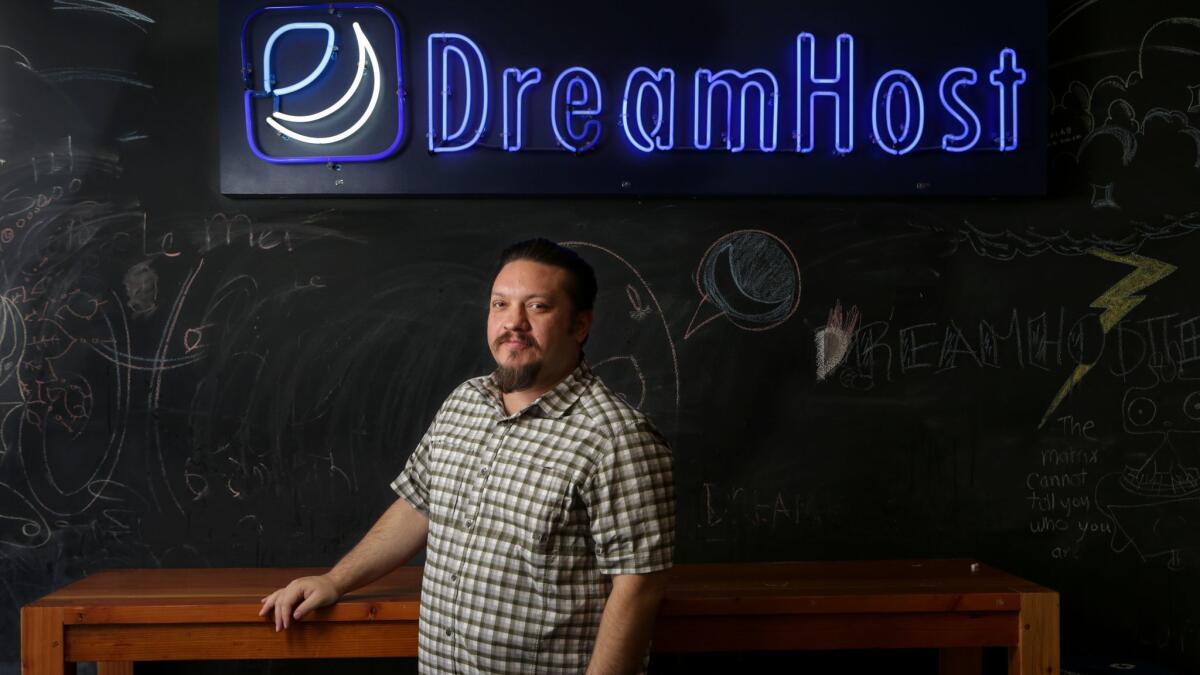Court limits government warrant for data about anti-Trump website

A District of Columbia judge on Tuesday placed strict limits on a government warrant that seeks to force a Los Angeles web host provider to turn over digital data about visitors to a website that helped organize anti-Trump protests.
After upholding the warrant in August, Superior Court Chief Judge Robert E. Morin ruled in a final order that the company could redact some of the identifying information about site visitors in order to protect their privacy and constitutional rights.
Under the order, the Justice Department cannot obtain information that would identify people who interacted with the site until investigators have concluded – and the court agrees – that it is evidence of criminal activity.
“While the government has the right to execute its warrant, it does not have the right to rummage through the information contained on DreamHost’s website and discover the identity of, or access communications by, individuals not participating in alleged criminal activity, particularly those persons who were engaging in protected 1st Amendment activities,” Morin wrote.
Justice Department officials initially filed a search warrant in July to obtain data from DreamHost about the 1.3 million visits to disruptj20.org, a website associated with organizing anti-Trump demonstrations on Inauguration Day that resulted in about 200 arrests.
The government had argued the data was necessary to prosecute alleged criminal activity, which they argued violated D.C. law.
DreamHost refused to comply with the warrant, saying it violated 1st Amendment rights of innocent Americans because the scope of the request was too broad and the information was too sensitive, including details about people’s political leanings.
In August, Morin ruled that DreamHost must provide the government with data from the site but that the government must first disclose how it plans to review the data and have a protocol in place to minimize the information they collected about visitors who did not engage in the demonstrations.
Under the final order that Morin issued Tuesday, DreamHost can redact identifying information of certain visitors who “communicated through, or interacted with, the website,” protecting what Morin had previously called “innocent visitors.”
After reviewing the records with the redacted information, the government would need to explain to the court why it needs to remove redactions. If the court finds that the requested information is evidence of criminal activity, DreamHost would be required to turn over the redacted information.
“Absent from a finding by the court that probable cause of criminal activity exists, the government will not be able to uncover the identities of these users,” Christopher Ghazarian, DreamHost’s general counsel, said. “This is another huge win, not just for DreamHost, but for internet users around the world.”
DreamHost and other privacy advocates worried the case would set a precedent allowing the government to obtain information about what websites a person had visited, particularly related to political content. They warned that could chill people’s freedom of speech and right to dissent.
The Justice Department declined to comment.
More to Read
Get the L.A. Times Politics newsletter
Deeply reported insights into legislation, politics and policy from Sacramento, Washington and beyond. In your inbox three times per week.
You may occasionally receive promotional content from the Los Angeles Times.






